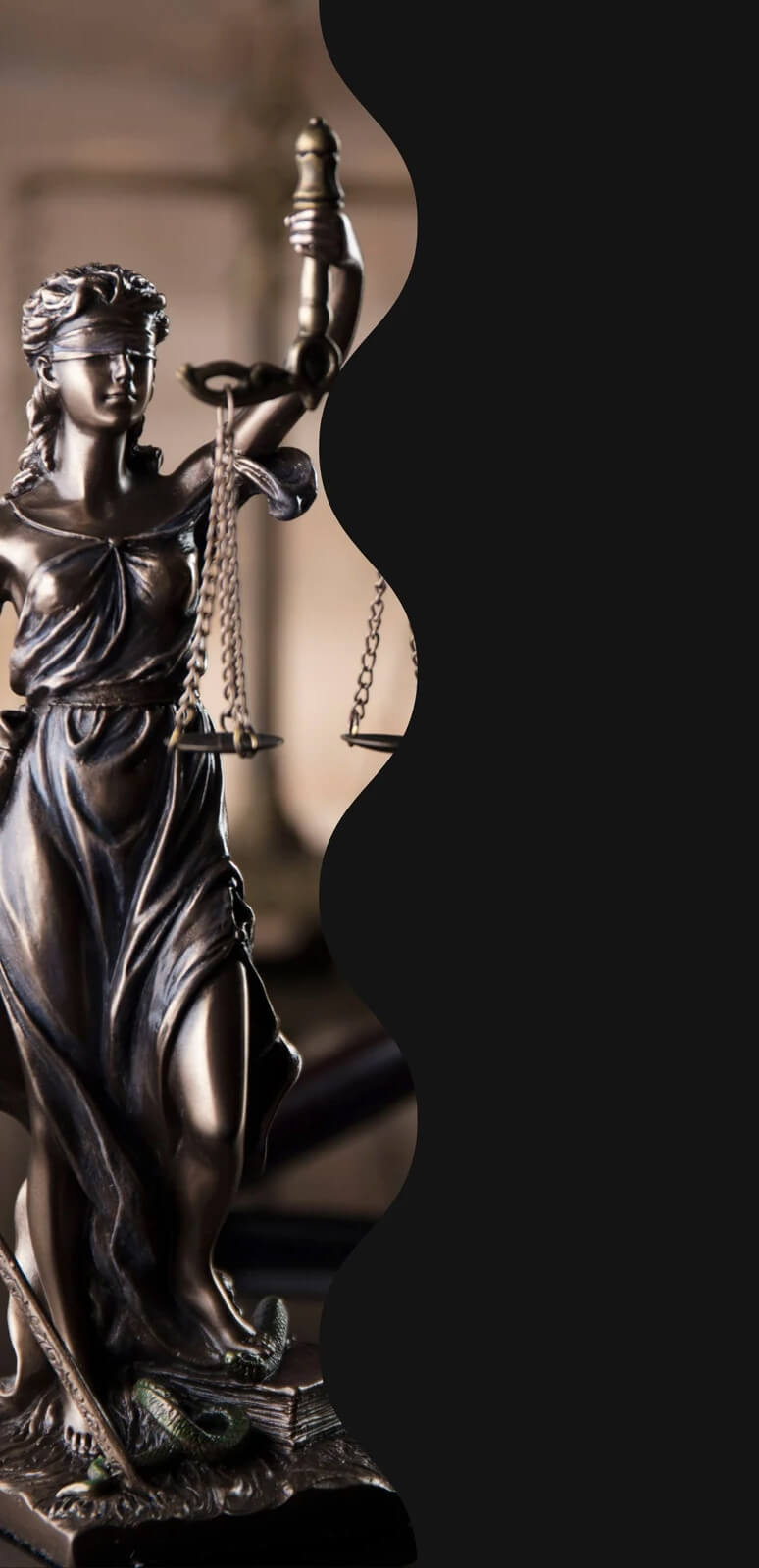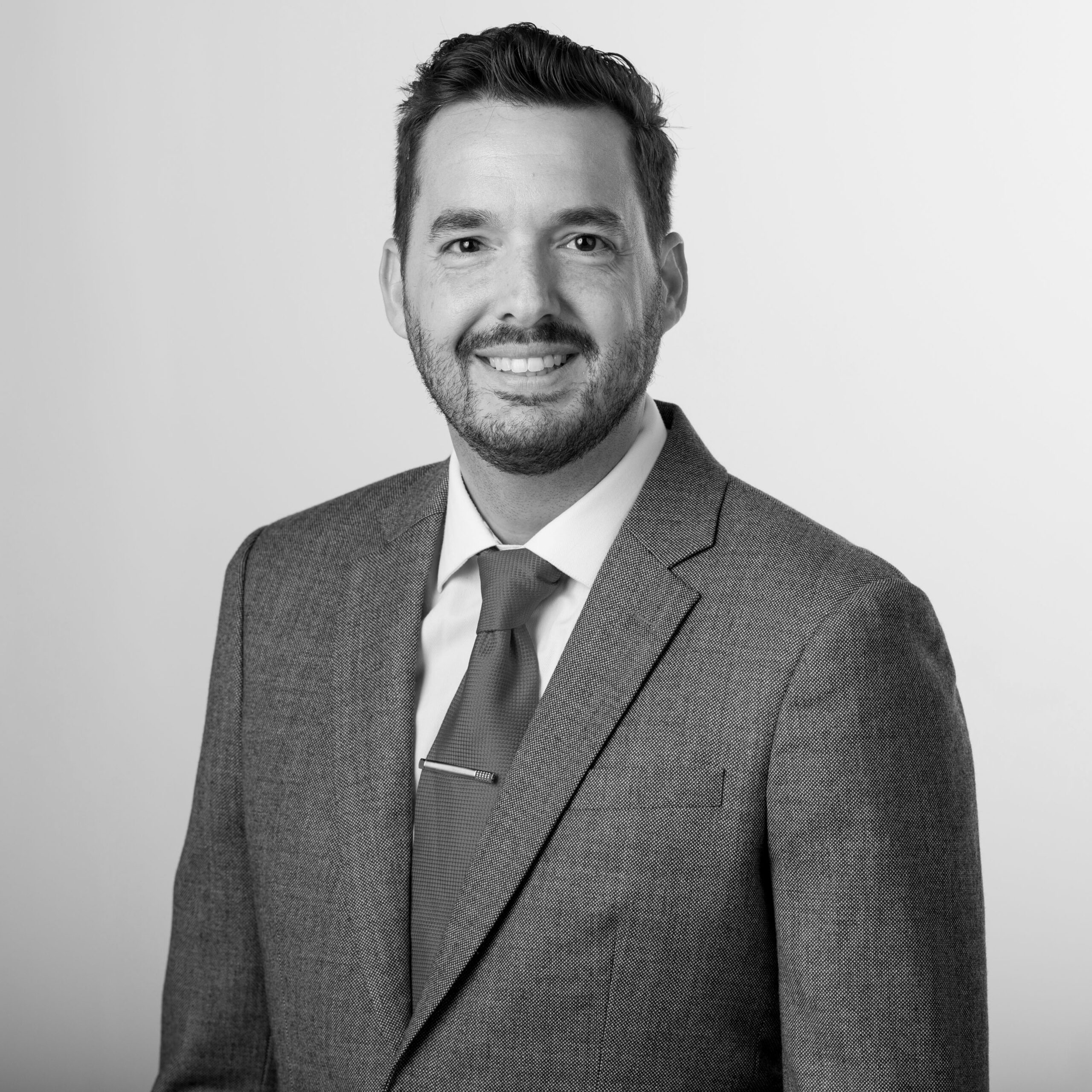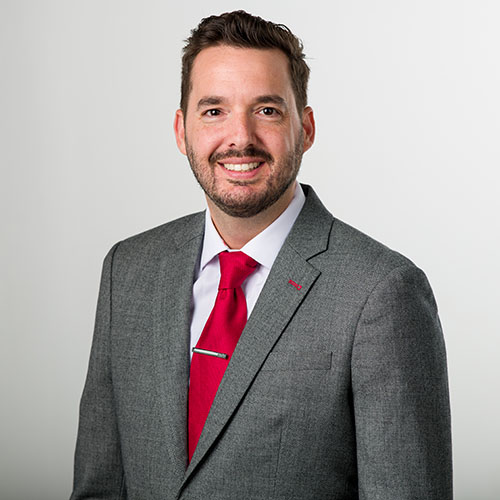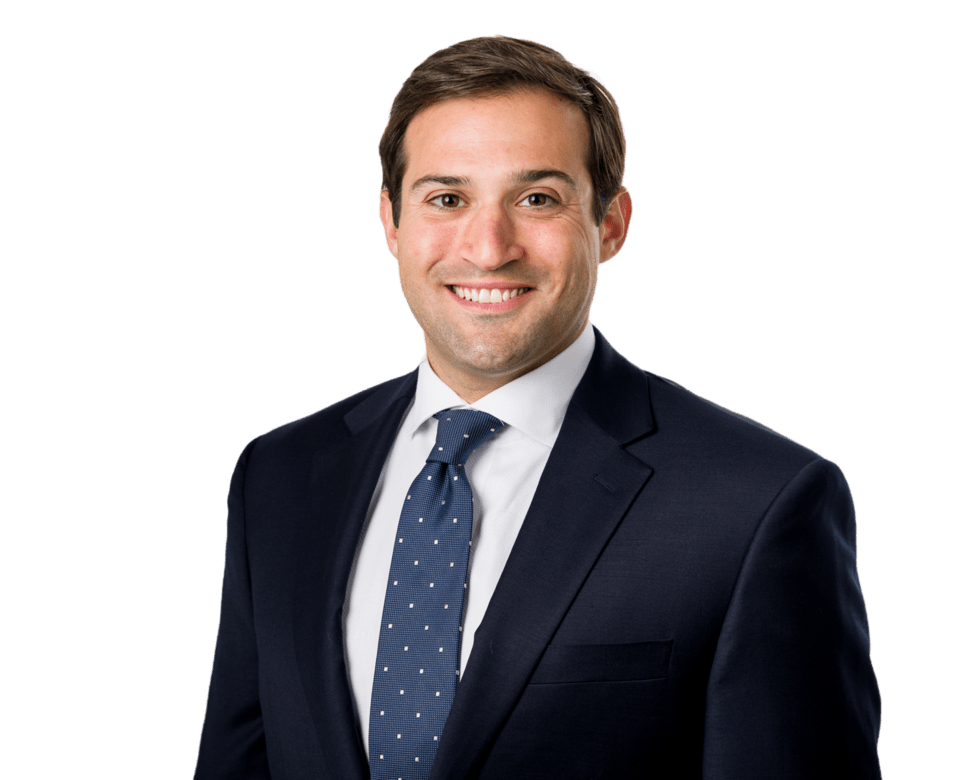We are Wrongful Death Trial Attorney LLC., our practice is devoted solely to people facing life-changing injuries and families mourning an untimely loss.
Wrongful Death Lawyer
If you suffered the loss of a loved one due to negligent healthcare providers, car accidents, motorcycle accidents, intentional harm, nursing home abuses or catastrophic injuries, you need a wrongful death lawyer to gather the right evidence for your case and present a strong case against liable parties.
Every loss ripples through a family and suddenly there are funeral costs, lost income, and a future that no longer looks the same. If you are reading this because you need a wrongful death attorney for representation, you already know how quickly life can be divided into “before” and “after.” Our purpose is to help you move forward with clarity and a sense of justice.
We are Wrongful Death Trial Attorney LLC. and our attorneys focus solely on wrongful death cases; our entire toolkit is tailored to this challenge, featuring accident reconstruction specialists, economic loss experts, life care planners, and an in-depth wrongful death litigation team that prepares every file as if trial were tomorrow.
Choosing a wrongful death lawyer who handles nothing else means you do not compete for attention with hundreds of car-wreck or slip-and-fall files. Your loved one’s story is the story we tell every day in every negotiation and courtroom. When you are ready to talk, we will listen first, explain your options and take the legal burden off your shoulders so you can focus on healing. Reach out today for a free, private consultation.
Free Case Evaluation

What is Considered Wrongful Death?
A wrongful death occurs when someone’s life is cut short because another person or entity failed to act with reasonable care, or, worse, acted with outright misconduct. Think of situations like a distracted-driver crash, a defective product that malfunctions, or a medical mistake that should never have happened. In each case, the death itself wasn’t inevitable; it was the direct result of choices or conditions that could and should have been prevented. For the family left behind, the loss is emotional first and foremost, but it quickly spirals into practical hardships, lost income, sudden medical or funeral costs, and an irreplaceable gap in daily life and guidance.
Legally, wrongful death is a civil claim brought by close relatives or the representative of the deceased person’s estate. The suit asks a court (or a settlement negotiation) to recognize both the economic impact, wages the person would have earned, household services they provided, and the non-economic value of their companionship, love, and support. To succeed, the plaintiffs must show that the defendant’s negligence, recklessness, or intentional act caused the death and that measurable losses followed. While each state sets its own procedures and filing deadlines, the core principle is universal: society provides a pathway for families to seek accountability and financial security when a preventable death upends their lives.
What is a Wrongful Death Lawsuit?
A wrongful-death lawsuit is a civil action filed on behalf of the close relatives or the legal estate of a person who died because someone else acted negligently, recklessly, or intentionally. It is separate from any criminal case the state may pursue. Instead of seeking jail time, the suit asks a court (or an insurer) to compensate the family for the tangible and intangible losses tied to the death: lost lifetime earnings, medical or funeral expenses, and the everyday value of a parent’s guidance, a partner’s companionship, or a child’s love.
To succeed, the family (plaintiffs) must prove two core points: (1) the defendant’s wrongful act directly caused the death and (2) specific economic and emotional damages flowed from that loss. Each state sets its own rules about who can file, which damages are allowed, and how long the family has to bring a claim, but the purpose is the same, give loved ones a legal path to hold the at-fault party accountable and secure the financial stability they would have had if the death had never occurred. When families lose a loved one due to negligent actions of others, wrongful death lawyers help them pursue justice and compensation.
When a preventable death upends a family’s life, a wrongful-death lawyer becomes the point person for every critical step that follows. We can’t replace your loss but together, we’ll tell their story, demand accountability and win the justice and compensation your family deserves.

Our Practice Areas
Truck Accident Wrongful Death
Car Accident Wrongful Death
Medical Malpractice Wrongful Death
Construction Accident Fatalities
Motorcycle Accident Wrongful Deaths
Premises Liability Wrongful Deaths
Nursing Home Abuse Deaths
Product Liability Wrongful Deaths
Infant Wrongful Deaths
We Provide The Representation You Can Trust
Meet Matt Wetherington - Wrongful Death Attorney
Families trust Matt Wetherington as their wrongful death lawyer when the stakes couldn’t be higher. Matt has built a reputation as a leading advocate for those who have lost loved ones due to negligence or misconduct, securing record-setting verdicts and settlements in wrongful death litigation. With over a decade of experience, he excels in high-stakes cases involving truck crashes, medical errors, dangerous products, and other acts of negligence, relentlessly holding large corporations and insurers accountable.
Matt’s expertise in wrongful death cases is rooted in his in-depth knowledge of Federal Motor Carrier Safety Administration regulations, and industry technology, enabling him to uncover liability in complex cases where others might not. His courtroom success is matched by his leadership in the legal community, where he teaches fellow attorneys how to navigate wrongful death cases, particularly those involving fatal truck accidents. This dedication reflects his mission: to help families rebuild after unimaginable loss and to improve the legal system’s response to wrongful deaths caused by negligence and corporate misconduct.
His achievements speak volumes. Matt has led his firm to be ranked #1 in Georgia for personal injury by fellow attorneys for two consecutive years and earned induction into the ALM Verdicts Hall of Fame for securing one of Georgia’s largest auto wreck verdicts. Recognized as a Super Lawyer in Personal Injury and Products Liability, he has consistently delivered justice against global corporations, earning accolades like the Daily Report’s Top Auto Wreck Verdict in 2015.
Beyond the courtroom, Matt’s commitment to community service sets him apart. He founded the Tire Safety Group to prevent accidents caused by defective tires and chairs Auto Accident Survivors of Georgia, providing vital support to survivors. His advocacy extends to fostering the legal community through initiatives like the Georgia Legal Accelerator program, ensuring small-firm lawyers thrive.
From his roots as a first-generation college graduate in Climax, Georgia, to becoming a nationally recognized personal injury and wrongful death attorney, Matt Wetherington combines legal prowess with a passion for justice and change. Whether fighting for families in wrongful death cases or driving systemic improvements, he remains a trusted and formidable advocate. If you have lost a loved one due to negligence or intentional harm anywhere in Georgia, Matt is the wrongful death lawyer to ensure your family gets justice and closure.

Our firm exists solely to stand beside those hit by devastating injuries and families coping with sudden loss. We pour every skill and resource into the legal battle, giving you the freedom to heal and start rebuilding.

$24 Million Landmark Judgement
24+ Million Verdict for Failing to Recognize and Report Child Abuse

Why Choose Us for your Wrongful Death Cases?
100% Case Success Rate
Expert Legal Services
Compassionate Advocacy
No Fees Unless We Win
Resources & Dedication
Personalized Attention
24/7 Availability
Multi-Disciplinary Approach
Respected Litigation Reputation
We Fight for Your Right. No Win, No Fee.
Trust Score 4.5 (Based on 1,200 reviews)
Awards and Legal Memberships








Meet Our Attorneys

Get Justice and Compensation for Your Loss
Frequently Asked Questions
What Types of Damages Can Be Recovered in a Wrongful Death Lawsuit?
In a wrongful death lawsuit, the law aims to replace as many of the financial and emotional supports lost as money can allow. Although every state has its own definitions and caps, most recognize two tracks for compensation: (1) losses the family personally suffers because their loved one is gone and (2) losses the estate suffers on behalf of the person who died. Together, these damages can restore income that would have provided for everyday living, reimburse out-of-pocket expenses tied to the death, and acknowledge the profound human cost of losing guidance, love, and companionship.
Economic damages for the family
- Future wages and benefits the deceased would likely have earned (salary, bonuses, health insurance, retirement contributions)
- Loss of household services such as child-care, home maintenance, or driving responsibilities
- Funeral, burial, and memorial expenses
- Medical bills the family paid before death, if not pursued under a separate survival claim
Non-economic damages for the family
- Loss of companionship, love, and emotional support
- Loss of guidance and nurturing for children
- Mental anguish or emotional distress suffered by close relatives
Survival-type damages payable to the estate
- Medical expenses incurred between injury and death
- Conscious pain and suffering the person experienced before passing
- Lost earnings for that period, if any
- Property damage or other direct financial harm that occurred during the fatal incident
Punitive or exemplary damages
In cases involving gross negligence or intentional misconduct, some states allow additional damages designed to punish the wrongdoer and deter similar conduct in the future.
Because eligibility and limits vary across jurisdictions, families should speak with a wrongful death lawyer in their state to pinpoint every category of compensation available to them.
What Is the Average Settlement for a Wrongful Death Lawsuit?
Wrongful death settlements can vary widely based on the circumstances of each case. On average, settlements typically range between $500,000 and $1 million, but some cases may result in payouts well above $10 million, particularly when significant financial losses or punitive damages are involved.
Factors That Affect Settlement Amounts
Several key factors influence the value of a wrongful death claim:
- Economic Damages: These include medical bills incurred before death, funeral and burial expenses, and the loss of the deceased’s future income and benefits.
- Non-Economic Damages: These refer to intangible losses such as pain and suffering, emotional distress, loss of companionship, and loss of parental guidance.
- Punitive Damages: In cases involving gross negligence or intentional misconduct such as a DUI-related fatality, punitive damages may be awarded to punish the wrongdoer and deter similar behavior.
- Victim’s Age and Earning Potential: Younger victims with high future earning capacity often lead to higher settlement values.
- Liability and Evidence: The strength of the evidence and the clarity of the defendant’s fault can significantly impact the settlement amount.
- State Laws and Damage Caps: Laws vary by state regarding who can file a claim and whether there are limits on certain types of damages.
- Insurance Coverage: The amount of insurance available often influences the maximum potential payout.
Real-World Examples
While every case is unique, here are a few illustrative examples:
- $1.2 million – Settlement for a fatal car accident caused by a distracted driver.
- $750,000 – Medical malpractice case involving a delayed diagnosis.
- $5.5 million – Commercial trucking accident involving gross negligence.
- $15 million+ – Corporate negligence leading to multiple fatalities.
If you have lost a loved one due to someone else’s negligence, speaking with an experienced wrongful death attorney can help you understand your legal rights and determine the potential value of your claim based on your specific circumstances.
What Are the Odds of Winning a Wrongful Death Lawsuit?
While exact odds depend on the specifics of each case, plaintiffs in wrongful death lawsuits win approximately 50% to 70% of the time when the case goes to trial. However, it's important to note that most wrongful death claims are resolved through settlements before ever reaching a courtroom often in the plaintiff’s favor.
Factors That Influence the Chances of Success
- Clear Liability: Cases with strong evidence such as eyewitnesses, video footage, police reports, or expert testimony, have a much higher chance of success.
- Strong Legal Representation: Hiring an experienced wrongful death attorney significantly improves your odds, especially one familiar with local laws, judges, and jury behavior.
- Type of Case
- Car accidents and medical malpractice are among the most common wrongful death claims.
- Success rates may vary depending on the complexity (e.g., proving negligence in a medical case vs. a drunk driving crash).
- Settlement vs. Trial
- Roughly 90% to 95% of wrongful death cases settle out of court.
- Trials can be unpredictable, but settlements are usually negotiated based on the strength of the claim.
- State Laws
Each state has different rules regarding who can file, damage caps, and what must be proven some are more favorable to plaintiffs than others.
Realistic Expectations
- If liability is clear and damages are well-documented, your chances of reaching a favorable settlement are high.
- If liability is disputed or evidence is weak, success is still possible but may require a more aggressive legal strategy.
While no outcome is guaranteed, wrongful death claims backed by solid evidence, experienced legal counsel, and thorough documentation have a strong likelihood of success especially in settlement negotiations.
Who Can File a Wrongful Death Case?
Who is allowed to bring a wrongful-death claim depends on state statutes, but the right typically follows a clear order of priority rooted in family relationships and estate law. Most states give the first opportunity to a surviving spouse; if there is no spouse, the right shifts to children, then to parents. When none of those relatives exist or if the statute designates a different procedure, the personal representative of the decedent’s estate may file the lawsuit for the benefit of next-of-kin.
A few jurisdictions also allow financially dependent partners or putative spouses (those who reasonably believed they were married) to sue, and some give adult siblings or grandparents standing when closer heirs are absent. Because these rules can differ sharply, it is essential to check the statute in the state where the death occurred or consult a wrongful-death lawyer there.
Typical order of eligibility
- Surviving spouse – often shares proceeds with minor or dependent children.
- Biological or adopted children – if no spouse, or alongside the spouse where the statute splits the claim.
- Parents – when the decedent leaves no spouse or children; many states also let parents sue for the wrongful death of a minor child even if other heirs exist.
- Personal representative or executor of the estate – files on behalf of next-of-kin when direct relatives are unable or when the statute assigns all claims to the estate.
- Other dependents or heirs – adult siblings, grandparents, putative spouses, or financially dependent partners may qualify in certain states if closer relatives are absent.
Because standing is strictly enforced and filing deadlines are short, families should confirm early on which relative or representative has the legal right to sue in the jurisdiction where the wrongful act occurred.
Who Can File a Wrongful Death Case?
Who is allowed to bring a wrongful-death claim depends on state statutes, but the right typically follows a clear order of priority rooted in family relationships and estate law. Most states give the first opportunity to a surviving spouse; if there is no spouse, the right shifts to children, then to parents. When none of those relatives exist or if the statute designates a different procedure, the personal representative of the decedent’s estate may file the lawsuit for the benefit of next-of-kin.
A few jurisdictions also allow financially dependent partners or putative spouses (those who reasonably believed they were married) to sue, and some give adult siblings or grandparents standing when closer heirs are absent. Because these rules can differ sharply, it is essential to check the statute in the state where the death occurred or consult a wrongful-death lawyer there.
Typical order of eligibility
- Surviving spouse – often shares proceeds with minor or dependent children.
- Biological or adopted children – if no spouse, or alongside the spouse where the statute splits the claim.
- Parents – when the decedent leaves no spouse or children; many states also let parents sue for the wrongful death of a minor child even if other heirs exist.
- Personal representative or executor of the estate – files on behalf of next-of-kin when direct relatives are unable or when the statute assigns all claims to the estate.
- Other dependents or heirs – adult siblings, grandparents, putative spouses, or financially dependent partners may qualify in certain states if closer relatives are absent.
Because standing is strictly enforced and filing deadlines are short, families should confirm early on which relative or representative has the legal right to sue in the jurisdiction where the wrongful act occurred.
How is Wrongful Death Damages Divided Among Family Members?
How courts decide who gets what
When a wrongful-death case ends in a settlement or verdict, the money does not automatically arrive in one lump sum to a single person. Instead, the award is divided according to the rules of the state where the lawsuit was filed, any written agreements among the family, and—if minors or contested heirs are involved a judge’s final approval.
States that assign shares by statute
- Many jurisdictions set a fixed order e.g., the spouse receives one-third to one-half, and the balance is split equally among children; if there is no spouse or children, parents may take everything.
- These statutes leave little room for negotiation unless every heir signs off on a different split and the court agrees it is reasonable.
States that route funds through the estate
- Some states pay the entire award to the decedent’s estate, which then distributes the money under the will (or, if there is no will, under intestacy laws).
- Creditors of the estate may have limited access to wrongful-death proceeds, but survival-type damages (medical bills, lost wages before death) are usually available to them.
Court-approved allocations
- If minors, incapacitated adults, or feuding relatives are involved, judges often hold a brief hearing to confirm each person’s share and may create a trust or structured settlement to protect a child’s portion.
- Courts look at each heir’s financial dependence on the decedent, the level of emotional loss, and any special needs before signing off.
Private family agreements
- Relatives who are all legally eligible can sometimes decide among themselves to deviate from the statutory formula perhaps giving a larger share to a stay-at-home parent or a child with disabilities, so long as the agreement is in writing and the court finds it fair.
Because every state balances these factors differently and missed steps can delay payment or trigger tax and probate complications, families should have their lawyer spell out exactly how the award will be divided and documented before they sign any settlement paperwork.
What Evidence is Required to Prove a Wrongful Death Claim?
To prove a wrongful death claim, the following types of evidence are typically required:
- Proof of Death — such as a death certificate or medical examiner’s report, confirming the date, cause, and circumstances of death.
- Evidence of Negligence or Misconduct — this could include accident reports, surveillance footage, eyewitness statements, expert testimony, or investigation findings that show the defendant’s negligent, reckless, or intentional actions directly caused the death.
- Medical Records and Expert Opinions — to establish the link between the defendant’s conduct and the fatal injuries, supported by doctors, forensic experts, or other specialists.
- Financial Documentation — like income records, tax returns, employment records, or financial statements to support claims for lost income, benefits, or support the deceased would have provided.
- Proof of Relationship and Legal Standing — documents proving the claimant’s relationship to the deceased (such as birth certificates, marriage licenses) and their legal right to bring the claim under state law.
Evidence of Emotional and Non-Economic Losses — personal statements, psychological evaluations, or witness testimony showing the impact of the loss on family members for damages like loss of companionship or mental anguish.
What is the Role of Expert Witnesses in Wrongful Death Lawsuits?
Expert witnesses play a critical role in wrongful death lawsuits by helping to establish key facts that are beyond common knowledge. Their roles typically include:
- Establishing Cause of Death — Medical experts, such as forensic pathologists, can testify about how the death occurred and whether it was linked to the defendant’s actions.
- Proving Standard of Care — In cases involving medical malpractice or professional negligence, experts explain what the accepted standard of care was and how the defendant’s conduct fell short.
- Economic Loss Evaluation — Financial experts or economists help calculate the value of lost earnings, future financial support, and other economic damages resulting from the death.
- Clarifying Technical Issues — Experts in fields like engineering, accident reconstruction, product design, or workplace safety can explain complex evidence, making it understandable to the court and jury.
- Supporting Non-Economic Damages — Psychologists or mental health experts may testify about the emotional impact of the death on surviving family members.
In short, expert witnesses strengthen a wrongful death case by providing credible, professional opinions that help prove liability, causation, and damages. Expert witnesses work hand in hand with wrongful death attorneys to establish these critical elements that make a strong claim.
Who Can Be Held Liable in Wrongful Death Claims?
In wrongful death claims, liability depends on the facts of the case, but the following parties are commonly held responsible:
- Individuals — such as negligent drivers, property owners, healthcare providers, or anyone whose direct actions or negligence caused the death.
- Employers — when an employee’s wrongful act occurs within the scope of their employment or if the employer failed to provide a safe environment.
- Manufacturers and Product Designers — in cases involving defective products, unsafe machinery, or pharmaceuticals that led to death.
- Property Owners or Managers — if hazardous property conditions caused a fatal accident (e.g., slip and fall, security failures).
- Government Entities — in limited cases, such as wrongful death caused by unsafe public roads, government-run facilities, or law enforcement actions (subject to sovereign immunity laws and notice requirements).
- Medical Professionals and Facilities — for medical malpractice or negligent care resulting in death.
Anyone whose negligent, reckless, or intentional acts contributed to the death may be named in a wrongful death lawsuit. A wrongful death attorney evaluates all available evidence to determine liable parties in a claim.
How to Hire the Best Wrongful Death Attorney?
Choosing a lawyer after a wrongful death is more than a paperwork decision; it sets the course for your family’s financial security and sense of justice. The “best” wrongful death attorney for one case may not be right for another. Look for a firm that treats your loved one’s story as its only focus, communicates in plain language, and has the resources to prepare every case for trial, not just settlement negotiations. Below are the qualities and steps that separate a capable wrongful-death lawyer from a truly exceptional advocate.
Essential qualities to look for
- Exclusive or deep experience with wrongful death – A lawyer who handles mostly these cases will know the experts, damages models, and courtroom strategies that move juries.
- Documented trial results – Check verdict and settlement records; insurers respect attorneys who have proved they will go to court when offers fall short.
- Access to a strong expert network – Accident reconstructionists, forensic economists, grief-impact specialists, and medical professionals should already be on the firm’s call list.
- Transparent fee structure – Most wrongful-death cases are handled on contingency; confirm the exact percentage, who pays case costs up front, and how costs are reimbursed.
- Clear, compassionate communication – You should speak directly with the lawyer in charge, receive regular updates, and feel that your questions are welcome.
Practical steps before you sign
- Collect referrals and compare – Ask trusted friends, attorneys in other fields, or local bar associations, then research each candidate’s online reviews and disciplinary record.
- Schedule free consultations – Prepare case details and specific questions so you can gauge knowledge and bedside manner.
- Ask pointed questions – How many wrongful-death trials have you handled? What is your average recovery? Will you advance litigation expenses? Who will actually try the case?
- Review the written fee agreement – Confirm the contingency percentage, expense policy, and what happens if you choose to change lawyers.
- Trust your instincts – The best attorney is one who combines expertise with genuine empathy, makes complex issues understandable, and gives you confidence that your family’s future is in capable hands.










